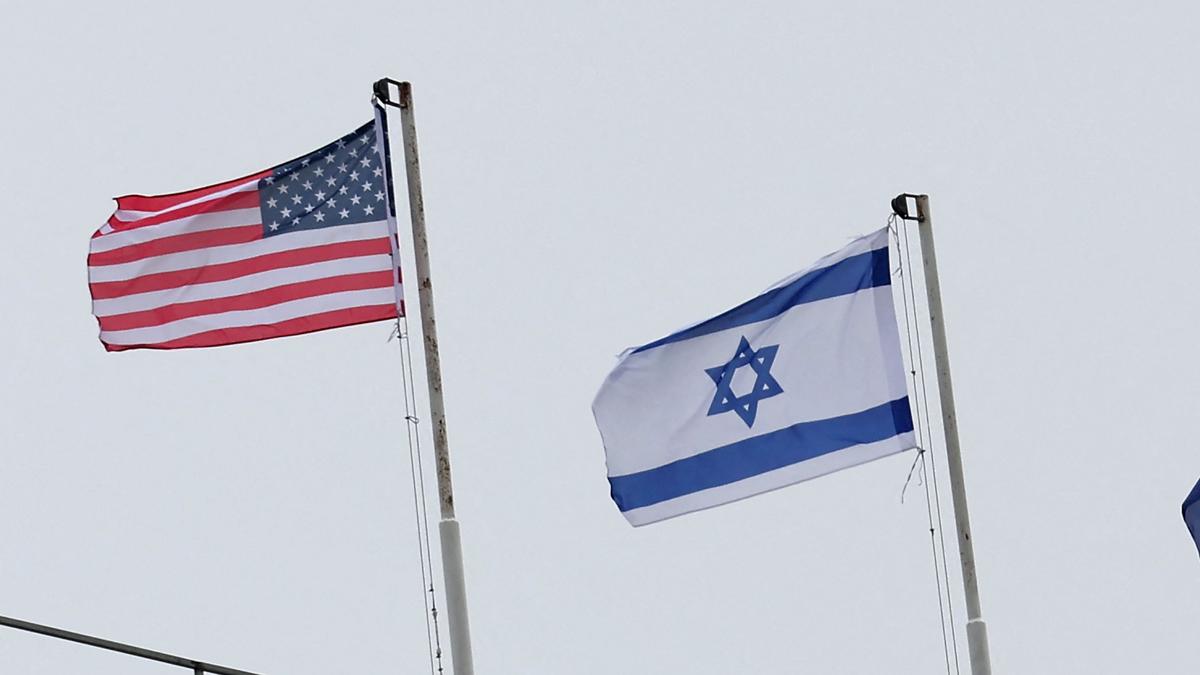In a move that has sparked both support and criticism, the United States has proposed an $8 billion arms sale to Israel. This announcement, which comes amidst heightened tensions in the Middle East, raises questions about the implications of such a deal on regional stability and the U.S.’s role in global geopolitics.
The Proposed Deal
The Biden administration has formally notified Congress of its intent to proceed with the sale, which includes an extensive array of military equipment. The package reportedly features advanced munitions such as:
- AIM-120C-8 AMRAAM missiles
- 155mm artillery shells
- Hellfire AGM-114 missiles
- Small-diameter bombs
- JDAM tail kits
- 500-pound warheads
Some of these items are available for immediate delivery, while others will require up to a year for production and shipping. The deal underscores the U.S.’s ongoing commitment to Israel’s defense capabilities, especially in light of persistent threats from regional adversaries like Iran and its proxies.
Why Now?
This deal, if approved, would be one of the last major arms agreements under President Joe Biden’s administration. Analysts suggest that it reflects a strategic move to reinforce Israel’s military edge, particularly as Iran’s influence continues to grow in the region.
Defense analyst Michael Brooks states, “The timing is significant. With escalating tensions in the Middle East, this sale sends a clear signal of the U.S.’s unwavering support for Israel while also serving as a deterrent to hostile actions by Iran and its allies.”
Congressional Review and Concerns
While the deal awaits approval from the House and Senate foreign relations committees, it has already generated a robust debate. Supporters argue that the sale is essential for Israel’s self-defense and aligns with the U.S.’s long-standing policy of maintaining Israel’s qualitative military edge in the region.
However, critics within Congress and various advocacy groups have raised concerns. Their objections center on the potential for civilian casualties in conflict zones and the broader implications for peace in the Middle East.
Senator Jane Thompson, a vocal critic of the deal, remarked, “While we support Israel’s right to defend itself, we must also consider the consequences of flooding an already volatile region with more arms. Diplomacy, not weaponry, should be our focus.”
A History of Strategic Partnership
The U.S.-Israel relationship has been characterized by deep military cooperation and mutual strategic interests. Over the years, the U.S. has provided Israel with billions in military aid, helping to bolster its defense infrastructure.
This proposed $8 billion sale follows another substantial $20 billion arms package approved in August 2024. Such deals underscore the U.S.’s commitment to ensuring that Israel remains well-equipped to counter threats from Hezbollah, Hamas, and other groups.
Regional Reactions
Unsurprisingly, the announcement has drawn mixed reactions from other Middle Eastern nations. While U.S. allies like Saudi Arabia and the UAE have remained relatively silent, likely due to their own arms agreements with the U.S., adversaries like Iran have strongly condemned the move.
Iranian Foreign Ministry spokesperson Nasser Kanaani labeled the sale as “an act of aggression disguised as defense.” He accused the U.S. of exacerbating instability in the region by disproportionately arming Israel.
Broader Implications
Beyond the immediate regional dynamics, this arms sale has far-reaching implications for U.S. foreign policy. It highlights the Biden administration’s prioritization of traditional alliances even as it seeks to recalibrate relationships in the Middle East.
Dr. Rebecca Grant, an international relations expert, suggests, “This deal reinforces the U.S.’s stance as a major arms supplier globally. However, it also raises ethical questions about the role of arms sales in perpetuating conflicts rather than resolving them.”
Moving Forward
As Congress deliberates on the proposal, the world watches closely. Approval of the deal would further cement the U.S.-Israel partnership but could also complicate efforts to mediate peace in the Middle East.
For the U.S., the challenge lies in balancing its strategic interests with its responsibilities as a global leader advocating for peace and stability. As for Israel, the deal represents a vital boost to its defense capabilities, albeit with potential diplomatic costs.
The Unanswered Question
Will this $8 billion arms sale serve its intended purpose of strengthening Israel’s defense, or will it fuel further instability in the Middle East? As the debate continues, one thing is clear: this deal is as much about geopolitics as it is about military hardware, and its consequences will resonate far beyond the immediate region.
Also Read-
1. 3 Lives Lost: Could the Coast Guard Helicopter Crash in Gujarat Have Been Prevented?




















One thought on “$8 Billion Arms Sale: Is the U.S. Strengthening Israel’s Defense or Risking Regional Tensions?”